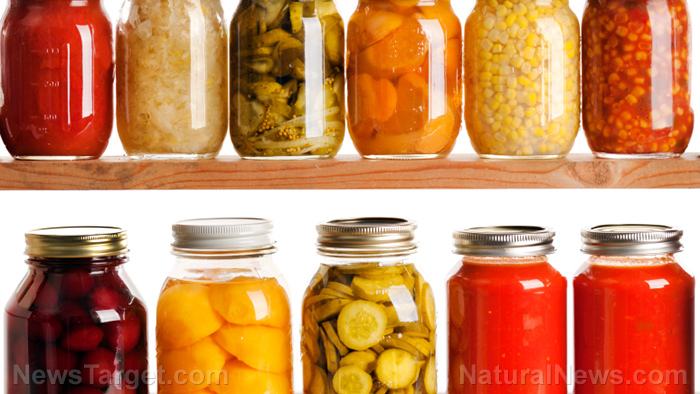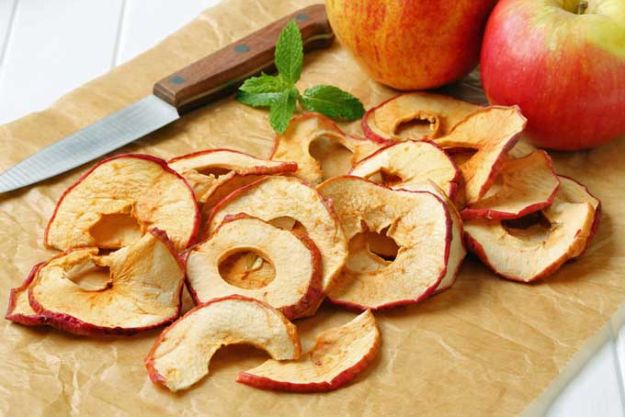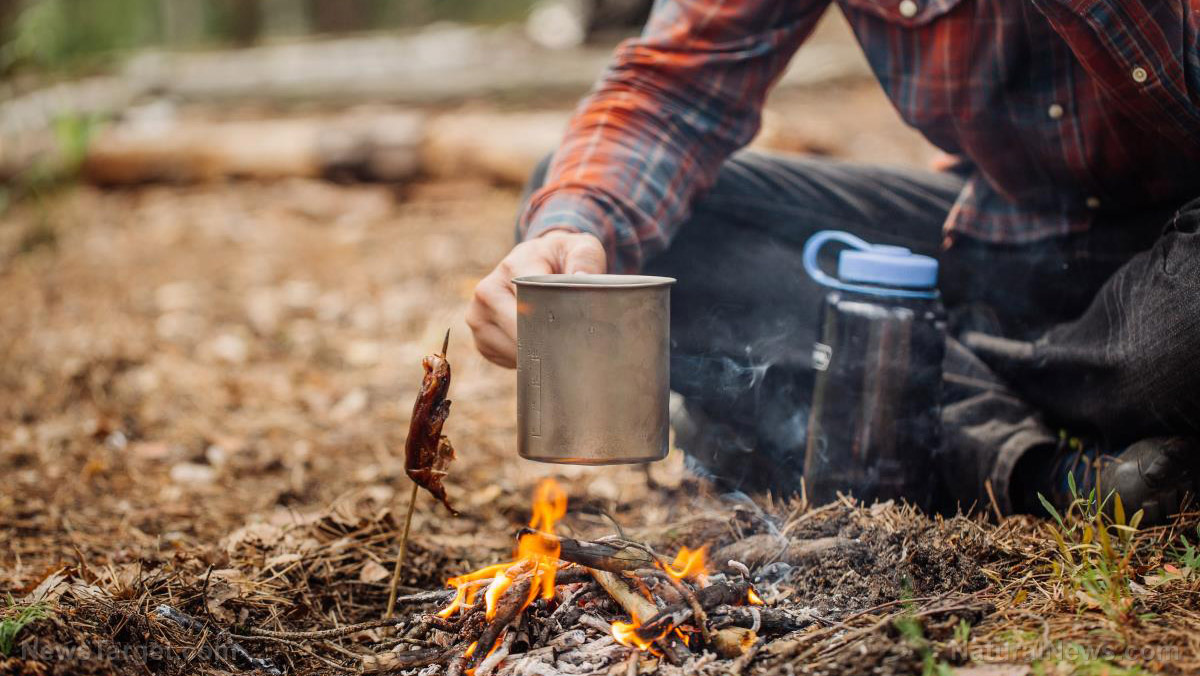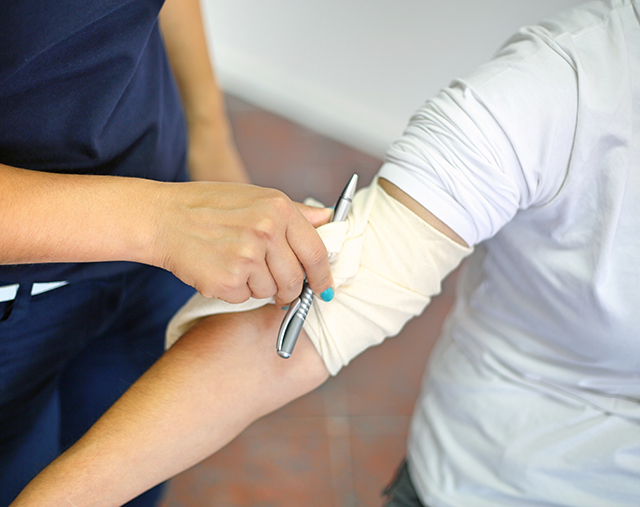Learning how to preserve food is an essential skill to have when SHTF. Here are some ways to preserve food – even without the use of electricity. (h/t to JustPlainMarie.ca.)
Preserve food by curing.
Curing is a process that uses both salt and sugar to draw out excess water. The food is then tightly packed into a crock or lidded container and stored at a stable and cool temperature.
There are different forms of curing: drying, salt curing, and brining. The type of curing you will use depends on what food you have, your environment, and what equipment you will use. The most common foods to cure are vegetables, fish, and meat, although there are recipes for curing fruit as well.
Drying, also called dehydration, is one of the oldest, simplest, and easiest methods of preserving food without electricity. This type of curing removes all water content to prevent the growth of mildew, bacteria, and mold – which means that food can be stored for long periods of time. Although it may remove some of the water-soluble vitamins, other vitamins, minerals, calories, and fiber are retained. Dried foods are lightweight, thus they can be stored easily. Sun or air drying is best for fruits and vegetables if you live in a dry, hot region. For meat, air drying is only recommended in very hot, dry climates. Meat should be dehydrated on racks over an open fire, in a current of warm, dry air to prevent flies from laying eggs on it.
Adding salt is another wise precaution. Salt improves the drying process and serves as an additional antimicrobial agent. Unlike salt curing, brining involves submerging food in a salt and water solution. Both salt-cured and brined foods should be soaked in water to remove excess salt.
Preserve food by smoking.
Most foods that are preserved through smoking are meat. Like a lot of smoked meats, bacon is first cured in salt and is finished by smoking. The smoke releases the many therapeutic and fragrant properties of the wood, impedes bacterial growth, and releases acid in the food to lower the pH. It also gives the food a unique flavor. The best way to smoke food is to keep the fire low and far away from the food, so that only the hot smoke and not the heat from the fire reaches the food. However, this may take a lot of time unlike hot smoking, which can be done in a barbecue.
Preserve food by canning.
This may be the most versatile method of food preservation without electricity, except for some type of sustained heat source. Canning only involves a careful step-by-step process wherein food is sealed in jars or canned and then heated in water in order to sterilize it and kill bacteria. As long as it is done right, canning is extremely safe and the sealed food can be stored for a long period without spoiling. Most canned foods can be eaten immediately. (Related: An essential guide to canning: What you need and how to get started.)
Importance of food preservation
Although preserving your own food requires more work compared to just buying preserved food at the grocery store, there are several benefits of preserving your own food. Here are some of them:
- Preserving your own food is much healthier than buying preserved ones at the grocery store because you have control over the way your food is produced and what goes into your food.
- If you have your own garden, preserving your own produce can make seasonal harvest last throughout the year.
- Food preservation also gives food a unique flavor.
Learn more about food preservation and survival by going to Bugout.news.
Sources include:
JustPlainMarie.ca
PreserveAndPickle.com


















